gesis report 05/22
Liebe Leser*innen, unser GESIS-YouTube-Kanal ist immer einen Besuch wert. Neben den regelmäßig erscheinenden Mitschnitten unserer Vorträge aus der 3. Staffel der Reihe "Meet the Experts" finden sich dort ab sofort auch die aufgezeichneten Vorträge der "International PIAAC Research Conference 2022". Die PIAAC-Konferenz fand im März online statt und wusste durch ihr hochkarätiges Programm zu bestechen. In den nächsten Wochen werden gleich mehrere Playlists bei YouTube verfügbar sein, die die aufgezeichneten Vorträge thematisch bündeln. Bereits verfügbar sind die ersten vier Videos der Playlist "Insights from the International PIAAC Research Conference 2022: What determines adult cognitive skills - The childhood roots?" sowie sechs Videos der Playlist "Insights from the International PIAAC Research Conference 2022: Lifelong learning and cognitive skills – What are the drivers?". Ihre Redaktion | Dear readers, our GESIS YouTube channel is always worth a visit. In addition to the regularly published recordings of our presentations from the 3rd season of the series "Meet the Experts", you can now also find the recorded presentations of the "International PIAAC Research Conference 2022" there. The PIAAC conference took place online in March and impressed with its top-class program. In the coming weeks, several playlists will be available on YouTube, which will bundle the recorded lectures thematically. Already available are the first four videos of the playlist "Insights from the International PIAAC Research Conference 2022: What determines adult cognitive skills - The childhood roots?" and six videos of the playlist "Insights from the International PIAAC Research Conference 2022: Lifelong learning and cognitive skills - What are the drivers?". Visit our GESIS YouTube channel!
Your editorial team |
GESIS Fall Seminar in Computational Social Science 2022 – Still Places available!The Fall Seminar will take place from 5 to 23 September 2022 at GESIS in Mannheim. Week 1 (5-9 September) comprises courses on the foundations of working with digital behavioral data. Courses in Week 2 (12-16 September) focus on the collection and management of big data, and courses in Week 3 (19-23 September) cover different techniques for analyzing these data. More info and registration on https://www.gesis.org/fallseminar GESIS Summer School in Survey Methodology 2022 – Save one of the last places!The Summer School will take place from 03 to 26 August 2022. Some courses will be held on-site in Cologne and some online. Check out the entire program, including detailed descriptions of this year’s courses on Directed Acyclic Graphs (DAGs), Data Science Techniques, Factorial Survey Design, Web Surveys, Mixed-Mode Surveys, Longitudinal Social Network Data, Questionnaire Design, Survey Design, Stata or R, Sampling and Weighting, (Non-)Probability Samples, and Multiple Imputation. Apply Now: For registration and detailed descriptions, please visit www.gesis.org/summerschool. Call for Papers: 10. Konferenz „FORSCHEN MIT DEM MIKROZENSUS“ | GESIS Training |
 | Jetzt neu in ZIS: Messinstrumente nun auch im Onlineformat verfügbar!Web-basierte Erhebungen sind nicht zuletzt seit der COVID-19 Pandemie unverzichtbar für die Forschung in den Sozial- und Verhaltenswissenschaften. GESIS stellt mit dem kostenfreien Angebot ZIS – Open Access Repositorium für Messinstrumente über 300 Mesinstrumente zu verschiedenen Themen (z.B. Arbeit, Politik, Gesundheit) in den Sozial- und Verhaltenswissenschaften für Forschende bereit. Now new in ZIS: Measurement instruments now also available in online format!Web-based surveys have become indispensable for research in the social and behavioral sciences, not least since the COVID-19 pandemic. GESIS provides over 300 measurement instruments on various topics (e.g., labor, politics, health) in the social and behavioral sciences for researchers with the free service ZIS - Open Access Repository for Measurement Instruments. |
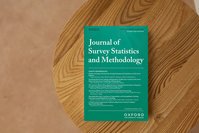 | Neue Publikation: Wolf, Bruch et al.: Split Questionnaire Designs for Online Surveys: The Impact of Module Construction on Imputation QualityJulian B Axenfeld, Annelies G Blom, Christian Bruch, Christof Wolf, Split Questionnaire Designs for Online Surveys: The Impact of Module Construction on Imputation Quality, Journal of Survey Statistics and Methodology, 2022;, smab055, https://doi.org/10.1093/jssam/smab055 - Online first Etablierte Face-to-Face-Erhebungen stehen zunehmend unter dem Druck, online durchgeführt zu werden. Ein solcher Wechsel des Erhebungsmodus ist mit methodischen Herausforderungen verbunden, unter anderem mit der Notwendigkeit, den Fragebogen, den jede/r Befragte erhält, zu kürzen. New publication: Wolf, Bruch et al.: Split Questionnaire Designs for Online Surveys: The Impact of Module Construction on Imputation QualityJulian B Axenfeld, Annelies G Blom, Christian Bruch, Christof Wolf, Split Questionnaire Designs for Online Surveys: The Impact of Module Construction on Imputation Quality, Journal of Survey Statistics and Methodology, 2022;, smab055, https://doi.org/10.1093/jssam/smab055 - Online first Established face-to-face surveys encounter increasing pressures to move online. Such a mode switch is accompanied with methodological challenges, including the need to shorten the questionnaire that each respondent receives. |
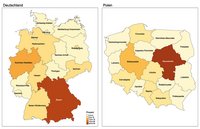 | Neuer Blog-Beitrag: Pötzschke, Weiß, Hebel, Piepenburg und Popek über Ergebnisse einer Onlinebefragung unter Ukraine-Flüchtlingen in Deutschland und PolenVor dem Hintergrund der russischen Invasion der Ukraine und der durch sie verursachten Fluchtbewegung hat GESIS in der zweiten Aprilhälfte 2022 eine Web-Befragung ukrainischer Flüchtlinge in Deutschland und Polen durchgeführt. Die Rekrutierung der Befragten erfolgte durch Werbeanzeigen auf Facebook und Instagram. DOI: 10.34879/gesisblog.2022.60 New blog post: Pötzschke, Weiß, Hebel, Piepenburg, and Popek on results of an online survey among Ukraine refugees in Germany and PolandAgainst the backdrop of the Russian invasion of Ukraine and the subsequent displacement of millions of its citizens, GESIS conducted a web survey of Ukrainian refugees in Germany and Poland in the second half of April 2022. Respondents were recruited through advertisements on Facebook and Instagram. |
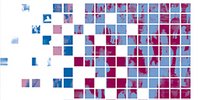 | Neue Publikation: Theresa Nutz: In sole or joint names? The role of employment and marriage biographies for married women’s asset ownership in later lifeTheresa Nutz, In sole or joint names? The role of employment and marriage biographies for married women’s asset ownership in later life, Research in Social Stratification and Mobility, Volume 79, 2022, 100690, ISSN 0276-5624, https://doi.org/10.1016/j.rssm.2022.100690. Diese Studie untersucht die Verteilung des Vermögens von Frauen innerhalb von Ehepaaren und wie das Zusammenspiel von Erwerbs- und Heiratsbiografien mit ihrem Vermögensbesitz im späteren Leben zusammenhängt. Anhand von Daten des Sozio-oekonomischen Panels (SOEP; 2002, 2007, 2012, 2017) untersucht die Autorin mit Hilfe von Mehrkanal-Sequenz- und Clusteranalysen Muster weiblicher Erwerbs- und Heiratsbiografien in Westdeutschland. New publication: Theresa Nutz: In sole or joint names? The role of employment and marriage biographies for married women’s asset ownership in later lifeTheresa Nutz, In sole or joint names? The role of employment and marriage biographies for married women’s asset ownership in later life, Research in Social Stratification and Mobility, Volume 79, 2022, 100690, ISSN 0276-5624, https://doi.org/10.1016/j.rssm.2022.100690. The way women hold assets within couples (solely or jointly) is a crucial dimension of their economic situation. This study examines the distribution of women’s assets within married couples and how the interplay of their employment and marriage biographies is related to their asset holdings in later life. Using data from the Socio-Economic Panel Study (SOEP; 2002, 2007, 2012, 2017), the author applies multichannel sequence and cluster analyses to examine patterns of female employment-marriage biographies in Western Germany. |
 | Neue Publikation: Hadler, Neuert, Ortmanns & Stiegler: Are you…? Asking questions on sex with a third category in Germany.Hadler, Patricia, Cornelia Neuert, Verena Ortmanns, and Angelika Stiegler. 2022. "Are you…? Asking questions on sex with a third category in Germany." Field Methods. doi: https://doi.org/10.1177/1525822X211072326. Der Geschlechtseintrag divers wurde zu Beginn 2019 in Deutschland für intersexuelle Menschen eingeführt, also für Menschen, die auf Basis ihrer primären oder sekundären Geschlechtsmerkmale weder eindeutig männlich noch weiblich sind. Im März 2019 haben die Autorinnen in einer Web Probing-Studie Daten zum Verständnis der Kategorie erhoben und ausgewertet. New publication: Hadler, Neuert, Ortmanns & Stiegler: Are you…? Asking questions on sex with a third category in Germany.Hadler, Patricia, Cornelia Neuert, Verena Ortmanns, and Angelika Stiegler. 2022. "Are you…? Asking questions on sex with a third category in Germany." Field Methods. doi: https://doi.org/10.1177/1525822X211072326. A question asking for respondents’ sex is one of the standard sociodemographic characteristics collected in a survey. Until now, it typically consisted of a simple question (e.g., “Are you…?”) with two answer categories (“male” and “female”). In 2019, Germany implemented the additional sex designation divers for intersex people. In survey methodology, this has led to an ongoing discussion how to include a third category in questionnaires. |
 | Neues Dateninfrastrukturprojekt für die Rassismus- und Rechtsextremismusforschung: DP-R|EXGESIS - Leibniz-Institut für Sozialwissenschaften freut sich, bekannt zu geben, dass das Verbundprojekt “Datenportal für die Rassismus- und Rechtsextremismusforschung” (DP-R|EX) nach einer sechsmonatigen Sondierungsphase am 01. März 2022 offiziell gestartet ist. Das Projekt wird vom Bundesministerium für Bildung und Forschung (BMBF) von 2021-2026 finanziert. New data infrastructure project for the racism and right-wing extremism research: DP-R|EXGESIS - Leibniz Institute for the Social Sciences is pleased to announce that the collaborative project "Data Portal for Research on Racism and Right-Wing Extremism" (DP-R|EX) has officially started on 01 March 2022 after a six-month exploratory period. The project is funded by the German Federal Ministry of Education and Research (BMBF) between 2021-2026. |
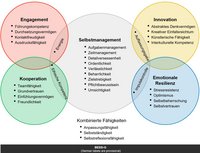 | Neue Publikation: Lechner, Rammstedt et al.: The Behavioral, Emotional, and Social Skills Inventory (BESSI): A German Adaptation and Further ValidationLechner, Clemens M., Thomas Knopf, Christopher Napolitano, Beatrice Rammstedt, Brent Roberts, Christopher J. Soto, and Marion Spengler. 2022. “The Behavioral, Emotional, and Social Skills Inventory (BESSI): A German Adaptation and Further Validation.” PsyArXiv. May 12. Preprint DOI: 10.31234/osf.io/r7pyj Soziale, emotionale und verhaltensbezogene Fähigkeiten (SEB) umfassen ein breites Spektrum an inter- und intrapersonellen Fähigkeiten, die für den Aufbau und die Pflege von Beziehungen, die Regulierung der eigenen Emotionen, die Auswahl und Verfolgung von Zielen oder die Erkundung neuer Lernmöglichkeiten unerlässlich sind. New publication: Lechner, Rammstedt et al.: The Behavioral, Emotional, and Social Skills Inventory (BESSI): A German Adaptation and Further ValidationLechner, Clemens M., Thomas Knopf, Christopher Napolitano, Beatrice Rammstedt, Brent Roberts, Christopher J. Soto, and Marion Spengler. 2022. “The Behavioral, Emotional, and Social Skills Inventory (BESSI): A German Adaptation and Further Validation.” PsyArXiv. May 12. Preprint DOI: 10.31234/osf.io/r7pyj Social, emotional, and behavioral (SEB) skills comprise a broad set of inter- and intrapersonal abilities that are essential for building and maintaining relationships, regulating one's emotions, selecting and pursuing goals, or exploring new learning opportunities. |
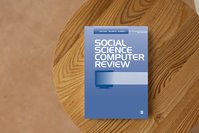 | Neue Publikation: Friedel, Felderer et al.: The Early Bird Catches the Worm! Setting a Deadline for Online Panel Recruitment IncentivesSabine Friedel, Barbara Felderer, Ulrich Krieger, Carina Cornesse, Annelies G. Blom: The Early Bird Catches the Worm! Setting a Deadline for Online Panel Recruitment Incentives, Social Science Computer Review, May 2022, online first, doi:10.1177/08944393221096970 Die Literatur über die Auswirkungen von Anreizen in der Umfrageforschung ist umfangreich und umfasst eine Vielzahl von Erhebungsmodi. Der Modus der "probability-based online panels" ist jedoch noch jung und damit auch die Forschung darüber, wie man am besten Stichprobeneinheiten für das Panel rekrutiert. Die vorliegende Arbeit beleuchtet die Wirksamkeit einer bestimmten Art von Anreiz in diesem Zusammenhang: ein monetärer Anreiz, der unter der Bedingung gezahlt wird, dass sich die Panelteilnehmer*innen innerhalb von zwei Wochen nach Erhalt der ersten postalischen Einladung registrieren. New publication: Friedel, Felderer et al.: The Early Bird Catches the Worm! Setting a Deadline for Online Panel Recruitment IncentivesSabine Friedel, Barbara Felderer, Ulrich Krieger, Carina Cornesse, Annelies G. Blom: The Early Bird Catches the Worm! Setting a Deadline for Online Panel Recruitment Incentives, Social Science Computer Review, May 2022, online first, doi:10.1177/08944393221096970 The literature on the effects of incentives in survey research is vast and covers a diversity of survey modes. The mode of probability-based online panels, however, is still young and so is research into how to best recruit sample units into the panel. This paper sheds light on the effectiveness of a specific type of incentive in this context: a monetary incentive that is paid conditionally upon panel registration within two weeks of receiving the initial postal mail invitation. |
 | E-Mail wird nicht richtig dargestellt? Jetzt im Browser anschauen! Eine Abbestellung des Newsletters "gesis report" ist jederzeit über diesen Link möglich: https://lists.gesis.org/mailman/listinfo/gesis-newsletter Sie können uns auch gerne eine E-Mail senden: pr(at)gesis(dot)orgDie Datenschutzhinweise von GESIS können Sie über folgenden Link einsehen: https://www.gesis.org/institut/datenschutz/ Display problems? No images? Open the newsletter in your browser! You can unsubscribe from the newsletter "gesis report" at any time via this link: https://lists.gesis.org/mailman/listinfo/gesis-newsletter You can also send us an e-mail: pr(at)gesis(dot)org The GESIS data protection information can be viewed via the following link: https://www.gesis.org/institut/datenschutz/ |

